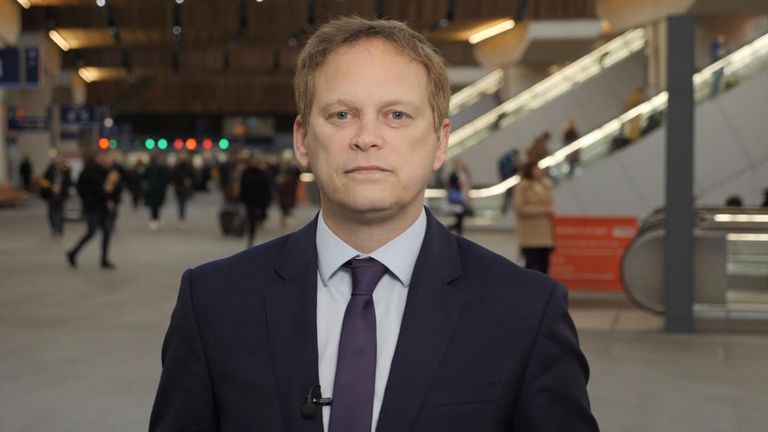Northern to be stripped of its rail franchise as fares across UK rise by 2.7%
Train operator Northern is to be stripped of its rail franchise, the transport secretary has announced, as fares across Britain rose by an average of 2.7%.
Grant Shapps has said “frustrated commuters will not have to wait long” before action is taken, after the chaotic introduction of new timetables in May 2018 saw up to 310 trains a day cancelled.
Punctuality and reliability problems continue to blight the network.
Office of Rail and Road figures show just 55.6% of Northern trains arrived at stations within one minute of the timetable in the 12 months to 7 December, compared with the average across Britain of 65.3%.
German-based Arriva holds the Northern franchise, which is due to run until March 2025.
Mr Shapps described services on the route as “really bad” and claimed passengers have “had a nightmare on that line” since 2016.
When asked if the firm would be stripped of its franchise, he replied: “The simple answer to the question is yes, it is going to be brought to an end.
“It’s partially a legal process but frustrated commuters will not have to wait long”.
The announcement comes after the average cost of tickets across the UK rose by 2.7% from today.
Some commuters face a rise of more than £100 for annual passes despite fewer than two-thirds of trains being on time last year.
Fewer than half of passengers are satisfied with the value for money of train tickets, according to the latest survey by watchdog Transport Focus.
Robert Nisbet, spokesperson for industry body the Rail Delivery Group, said rail companies have held average fare increases below inflation for the third year in a row “while continuing to deliver investment in new trains and extra services that will improve journeys for customers”.
He added that 2020 will see 1,000 extra weekly services and 1,000 more carriages added to Britain’s rail fleet.
Transport Secretary Grant Shapps announced a new fund will be created to support trials of more flexible fares across the country as part of improvements focused on “putting passengers first”.
But Labour’s shadow transport secretary Andy McDonald accused the government of failing to support public transport or tackling climate change, road congestion and air quality.
He said: “Today’s average fare increase means ticket prices have risen by 40% since 2010.
“In contrast, rail fares in Germany were cut by 10% yesterday. Labour pledged to cut rail fares by 33% to encourage people to get out of their cars and get on the train.”
Bruce Williamson, of pressure group Railfuture, claimed fares are “outstripping people’s incomes”.
He said: “Welcome to another decade of misery for rail passengers.
“How on earth is the government going to meet its climate commitments by pricing people off environmentally-friendly trains and on to our polluted and congested roads?”
Among the routes where the price of annual season tickets has increased by a three-figure sum are:
- Reading to London (up £132 to £4,736)
- Gloucester to Birmingham (up £118 to £4,356)
- Glasgow to Edinburgh via any permitted route (up £116 to £4,200)
Passengers buying tickets for day trips have also been hit by the fares rise.
An off-peak return ticket from Dundee to Edinburgh has increased in price by 50p to £29.40, while an anytime return ticket from Gillingham to London via the HS1 route is up £1.20 to £45.40.
The increase in around 45% of fares, including season tickets, is regulated by the UK, Scottish and Welsh governments.
This is predominantly capped at July’s RPI inflation figure, which was 2.8%.
Other fare rises are decided by train companies.
Source: Read Full Article



